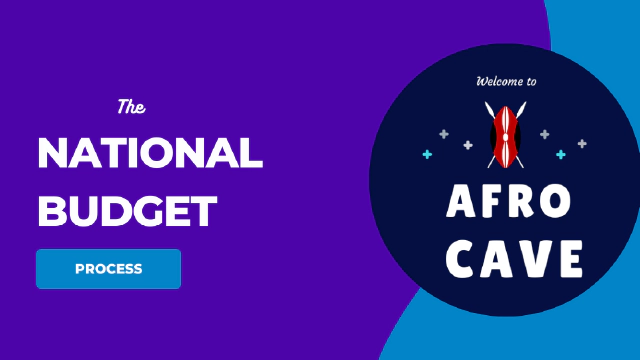The budgeting process for the national government in Kenya is a continuous process. It begins on 30th August of the current year. The process shall end on 30th December of the coming year.
The budgeting process for the national government in Kenya takes place in several stages. These stages are formulation, approval, implementation, and audit/evaluation. For a detailed explanation of these stages, see the key stages in the budget process in Kenya.
This article is an offshoot of the article above. It tries to explain the budgeting process for the national government in Kenya separately from the main article. The article above contains the budget process for both the national and the county government.
For a detailed explanation of the documents mentioned in this article, see the key documents essential to the budget process in Kenya. These documents include the budget policy statement, the budget review and outlook paper and the national budget estimates.
Table of Contents Show/Hide
The budgeting process for the national government in Kenya
The budgeting process for the national government in Kenya is a cycle. Each cycle contains a financial quarter of three months. Thus, there is the:
- First Quarter that begins from 1st July to 30th September;
- Second Quarter that begins from 1st October to 31st December;
- Third Quarter that begins on 1st January to 31st March; and
- Fourth Quarter that begins from 1st April to 30th June.
Therefore, the national government budget process in Kenya takes place in key dates within the stages and quarters above. The dates and what shall happen before or within those dates are indicated below.
1st Quarter (1st July to 30th September)
August 30: This date marks the beginning of the budget process for the national government in Kenya. On this date, the National Treasury shall issue a circular to every department (security, education, defence, etc.). The circular shall contain:
- the guidelines for the budget process for the coming financial year; and
- the procedures to follow to involve the public in the budget process (public participation).
The National Treasury (Ministry of Finance) shall also make the circular available to the public. Usually, this shall be through the treasury website(External Link).
A person can also request for the circular, in writing, from the National Treasury.
September 1 to February 15: The National Treasury shall conduct sector hearings during this period. The sector hearings allow the public and other stakeholders to give their views at the sectoral level (e.g. security, defence, education, etc.). These views are necessary to enable the National Treasury to prepare the Budget Policy Statement.
September 30: The National Treasury shall produce the Budget Review and Outlook Paper by this date.
2nd quarter (1st October-31st December)
This is what shall take place in the national government budget process in Kenya in the second quarter.
October 21: By this date, the National Treasury shall table the national Budget Review and Outlook Paper (BROP) before the National Assembly. This allows the Assembly to discuss the document.
November 15: The National Government shall publish its first-quarter budget implementation report by this date. The report covers the period from 1st July to September 31st of the current financial year. It shall then table the report before the National Assembly. Thereafter, it shall make the report public, usually through the Treasury website. This is usually the work of the National Treasury.
December 30: Deadline for the Auditor-General to publish and publicise the audit reports for the national government for the previous fiscal year.
3rd quarter (1st January-30th march)
This is what shall take place in the budget process for the national government in Kenya in the third quarter.
February 15:
- The national government publishes its 2nd quarter budget implementation report for the period from 1st October to 31st December. It shall table the report before the National Assembly and then make it public.
- The National Treasury shall submit four crucial documents to parliament on this date. These are the:
- National Budget Policy Statement (BPS);
- medium-term Debt Management Strategy paper;
- The Division of Revenue Bill (DoRB); and
- the County Allocation of Revenue Bill (CARB).
February 28: Parliament shall approve the Budget Policy Statement (BPS) by this date.
March 1: This is the deadline for the National Treasury to publish and publicize the Budget Policy Statement after tabling it before parliament.
March 15: This is the deadline for Parliament to consider the Division of Revenue and County Allocation of Revenue Bills and approve them with or without amendments.
4th quarter (1st April to 30th June)
April 30:
- The National Treasury shall submit the national budget proposal (or budget estimates) before Parliament. The Judiciary and the Parliamentary Service Commission shall also submit their independent budgets before parliament.
- The deadline for the Cabinet Secretary for finance to submit the Finance Bill before the National Assembly outlining the revenue-raising measures for the national government.
May 1 to June 30: Some of the activities that take place during this period have no specific timelines or deadlines.
- The Budget Committee for the National Assembly will begin to conduct public hearings on the budget proposals or estimates.
- The Cabinet Secretary for Finance shall publicize the national budget estimates ‘as soon as practicable’ after he or she table them before the National Assembly.
- The National Assembly shall consider the national government’s budget estimates. The Assembly shall then approve the estimates, with or without amendments, in time for the Appropriation Bill and any other laws required to implement the budget (except the Finance Bill) and pass the estimates by 30th June.
- Not later than twenty-one days after the National Assembly has approved the budget estimates, the National Treasury shall consolidate the estimates, publish, and publicize them respectively. (Approved Budget)
- Upon approval of the budget estimates by the National Assembly, the Cabinet Secretary for Finance shall prepare and submit an Appropriation Bill of the approved estimates to the National Assembly.
May 15: The national government shall publish its 3rd quarter budget implementation report by this date.
June 30:
- This is the deadline for Parliament to pass the Appropriation Bill.
- This is the deadline for the National Assembly to consider and approve the Finance Bill with or without amendments.
August 15: The deadline for the national government to publish and publicise its fourth-quarter budget implementation report.
Conclusion
From June 30th, the budgeting process for the national government in Kenya for the next year begins afresh from August. You shall again expect the Auditor General reports by 30th December to close the cycle for the previous year. Despite that, a new budget cycle or process begins in August going forward.
As stated before, see the linked article on key documents to see more about the documents mentioned in this article.
To show how the process works, a financial year in Kenya begins in July of the current year and ends in June of the coming year. Therefore, much of the budget cycle deals more with the coming financial year which begins in June of the coming year.
The major stages that take place in the budget cycle are formulation and approval (Between August of the current year and June of the next year). The implementation takes place from July of the next year to June of the year after that. The audit shall take place thereafter and the audit reports released by 30th December.
What this means is that the budget cycle takes approximately 29 months from the day formulation shall start to when the audit shall end.
I hope this article has helped you to understand the budgeting process for the national government in Kenya. For more explanation on what else takes place during the whole budget cycle, see the more detailed article, the budget Process in Kenya.

